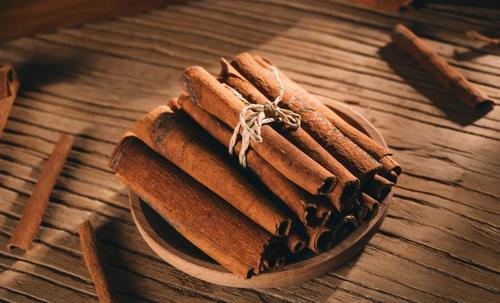Kitchen condiments weren't as common as we look now. Historically, they have played a number of important roles, such as provoking wars, curing diseases, and even acting as money.

In ancient times, the origin of cinnamon was a mystery to the Western world, and Arab traders wanted to keep it secret. To push up the price, they spread an elaborate story claiming that the big bird collected cinnamon from distant places and then nested on the cliffs. They lure the big bird with large pieces of beef, and let the big bird bring the beef back to the nest until it crushed the nest in order to get the cinnamon.
Europeans believed the story until the late 16th century, when the Portuguese discovered the true source of cinnamon– the small forests of Sri Lanka. The Portuguese then reached an agreement with the Sri Lankans to monopolize the cinnamon trade. In addition, they built forts to protect cinnamon. In 1658, the Dutch transplanted cinnamon. In 1796, cinnamon was introduced to Britain. Later, the cinnamon tree began to take root all over the world, and the story of cinnamon became history.
Saffron is one of the most expensive spices in the world. Historically, saffron was considered a panacea. In the 4th century BC, Alexander the Great took a saffron bath to heal the wounds suffered during the war. In the 14th century, saffron was used to suppress outbreaks. Due to the miraculous effect of saffron, the counterfeiting of saffron has occurred from time to time in history. In the 14th century, Germany enacted a law stipulating that counterfeiting saffron would be punishable by death. Recent studies have found that saffron has therapeutic effects on certain conditions.
Pepper is one of the most popular spices in history. Pepper is native to the mountainous regions of India and is known locally as "black gold". In fact, this underestimates the value of pepper, because the price of pepper is higher than the same weight of gold. Surprisingly, pepper seeds are even used as currency, and not just in India.
In the Netherlands, people use the term "as expensive as pepper" to describe some expensive goods. In the 1990s, the Dutch provoked a war with Portugal, one of which was a fight for the chili pepper trade. As the area under chili pepper cultivation expanded, the price of paprika also declined.
To fight the Black Death, Europeans used to hang nutmeg bags around their necks. Because the smell of nutmeg can drive away fleas, it may still have some effect. Indonesia's Banda Islands have been the sole source of nutmeg for centuries. In the 17th century, Dutch colonists occupied the Banda Islands in an attempt to monopolize the nutmeg trade. The Dutch soaked all the nutmeg in lime so that it could not be grown in other regions.
If it weren't for The Island of Lane, a small island in the Banda Archipelago, which continued to trade with the British, the program would have been impeccable. Despite a number of peace agreements with the British in 1618, the Dutch decided to invade the isle of Lyne and eventually captured the Lynn in 1666. A year later, the Dutch exchanged Manhattan Island for Lane Island to appease the British. The Dutch stole nutmeg from the British, but the British also got a "Big Apple" (New York's nickname), which can be said to be a gain or loss.